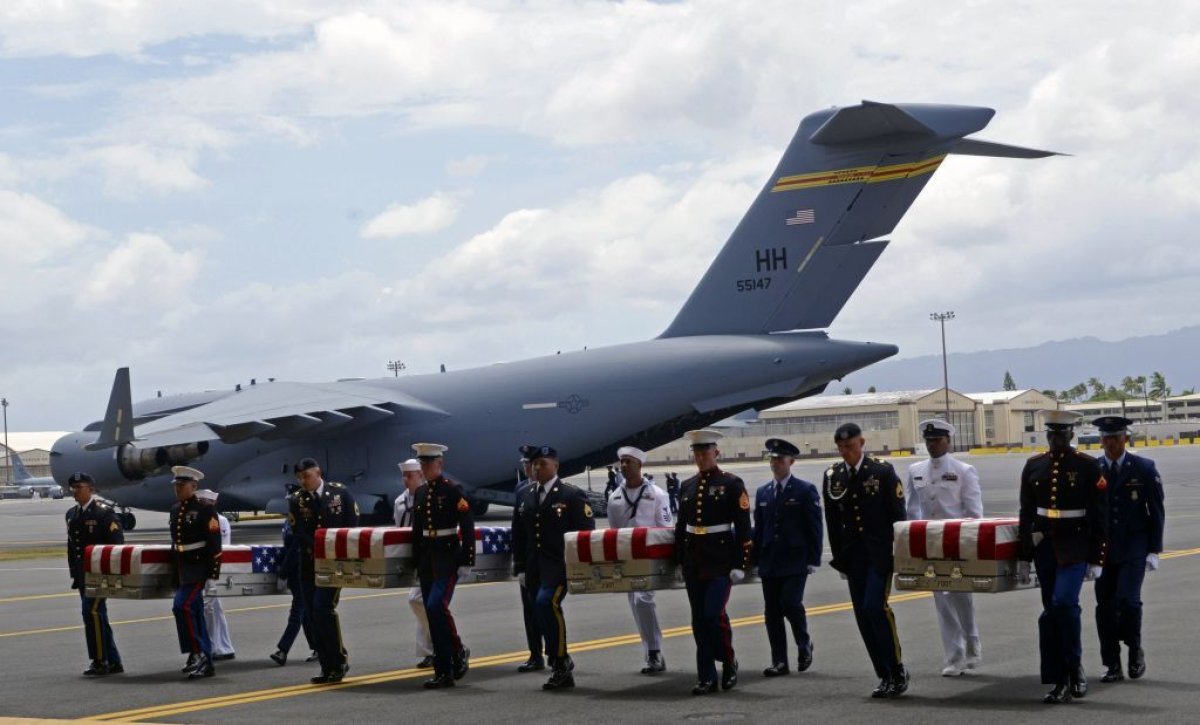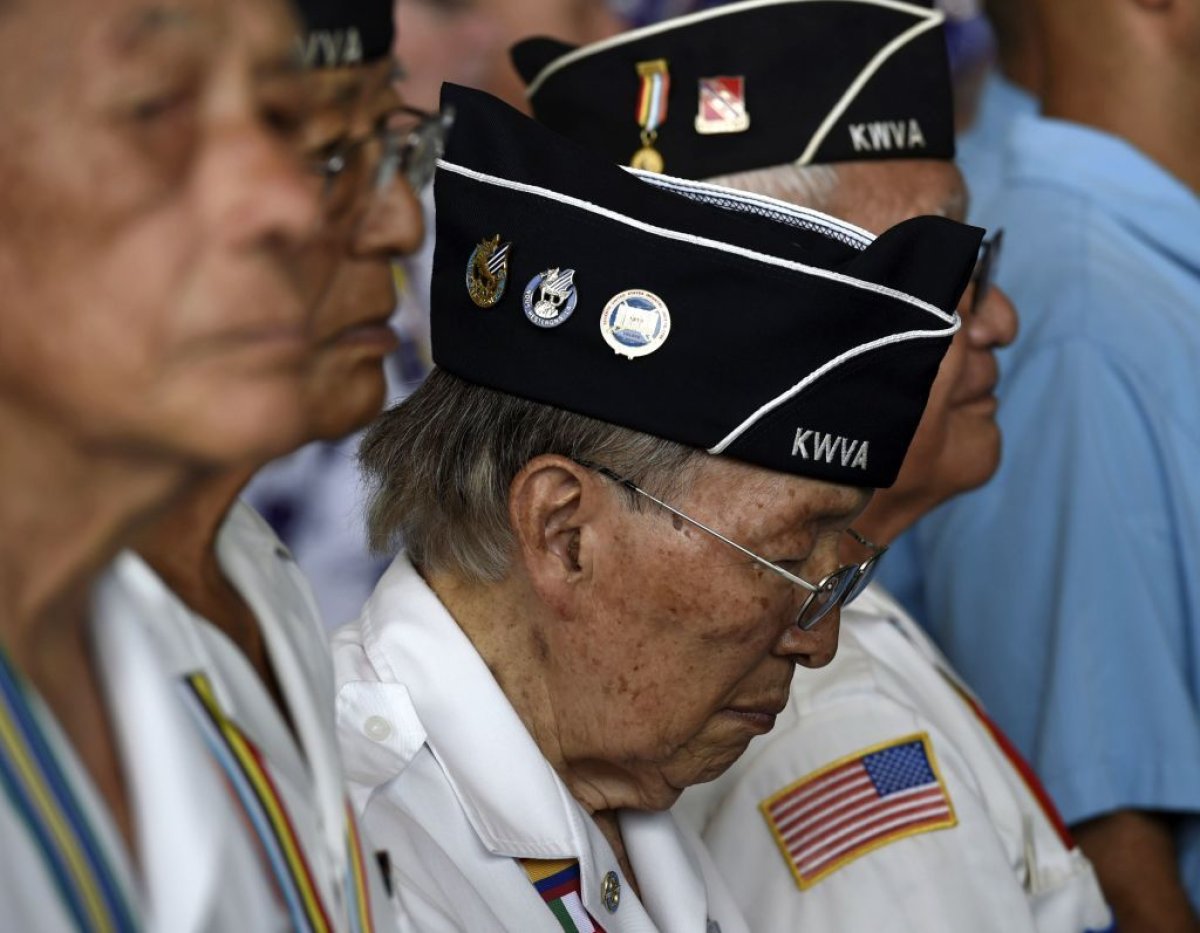Sampling the DNA from remains of American troops recently transferred from North Korea to the U.S. could take six months, with identification taking several months more, the anthropologist leading the team of experts has said.
"Once we start DNA sampling next week, under normal circumstances it will take six months to obtain the first results," Jennie Jin, director of the Korean War Project, told South Korea's Yonhap News Agency Wednesday. "And then the identification begins. That could take several months, although that varies."
The remains, believed to be U.S. soldiers from the Korean War, were returned to the U.S at the end of July as a goodwill gesture from Pyongyang, following the historic Singapore summit between North Korea's Kim Jong Un and President Donald Trump in June. According to Yonhap, some 7,700 American soldiers remain unaccounted for from the conflict, which lasted from 1950 to 1953. About 5,300 of these remains are believed to be in North Korea.

Pyongyang's July transfer wasn't the first time the country has returned American soldiers' remains to the U.S. In the 1990s, 208 boxes were transferred containing the remains of 400 individuals, and more were received as recently as 2005. In this recent goodwill gesture, North Korea sent 55 boxes, but it is still unclear how many soldiers' remains are included.
As a result, the U.S. team of scientists must work diligently to identify the remains and determine the number of soldiers.
"The North Koreans gave us data on where the remains were found, what each box contains, including the number of artifacts," Jin told Yonhap. "Based on that, my team in Hawaii is drawing up an inventory to be entered into a database this week."
Despite the uncertainty, John Byrd, director of scientific analysis for the U.S. Defense POW/MIA Accounting Agency, told reporters, "There's no reason at this point to doubt that they do relate to Korean War losses," following the official transfer. South Korea's Osan Air Base, where a repatriation ceremony was held, also said that the initial "field forensic review" suggests the "remains are what North Korea said they were."
Despite popular crime shows suggesting that DNA testing and identification can be done within a matter of hours, the process is actually much more difficult. According to BBC Science, "99.9 percent of the DNA from two people will be identical. The 0.1 percent of DNA code sequences that vary from person to person are what make us unique."

Just because two DNA samples do not match, it does not necessarily mean they aren't from the same individual. For more accurate results, scientists must test multiple genetic markers. Forensic DNA tests, such as those to be conducted by the Korean War Project, generally test six to 10 markers, according to the BBC. This makes the results far more accurate but also requires more time.
"One can guess how old an individual was based on their bones," Jin told Yonhap, noting that a person's bones continue to grow until around the age of 30. "Many of the soldiers were between the ages of 18 and 23, so many of their bones weren't even fully adjoined yet. You can tell just by looking at the bones."
Until the experts' work is complete, the identities and origins of the remains will be open to speculation. As Defense Secretary Jim Mattis pointed out in July, the soldiers could belong to any of the 16 other U.N. member countries that fought alongside the U.S.
"We don't know who's in those boxes," he said. "They could go to Australia. They have missing, France has missing.... There's a whole lot of us. So this is an international effort to bring closure for those families."
Uncommon Knowledge
Newsweek is committed to challenging conventional wisdom and finding connections in the search for common ground.
Newsweek is committed to challenging conventional wisdom and finding connections in the search for common ground.
About the writer
Jason Lemon is a Weekend Editor at Newsweek based in Brooklyn, New York. Prior to taking on the editor role, Jason's reporting focused on ... Read more
To read how Newsweek uses AI as a newsroom tool, Click here.








